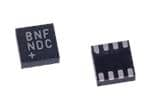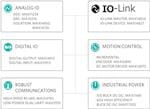MAX17505EVKITA#

See Product Specifications
Mfr.:
Analog Devices / Maxim Integrated
Description:
Power Management IC Development Tools Evaluation kit for 1.7A, 60V Synchronous
Availability
-
Stock:
-
An unexpected error occurred. Please try again later.13 Can Dispatch in 20 Days
Pricing (GBP)
| Qty. | Unit Price |
Ext. Price
|
|---|---|---|
| £31.11 | £31.11 |
Datasheet
Application Notes
- CNHTS:
- 8543709990
- CAHTS:
- 8473302000
- USHTS:
- 8473301180
- TARIC:
- 9030337000
- MXHTS:
- 8473300401
- ECCN:
- EAR99


 United Kingdom
United Kingdom


